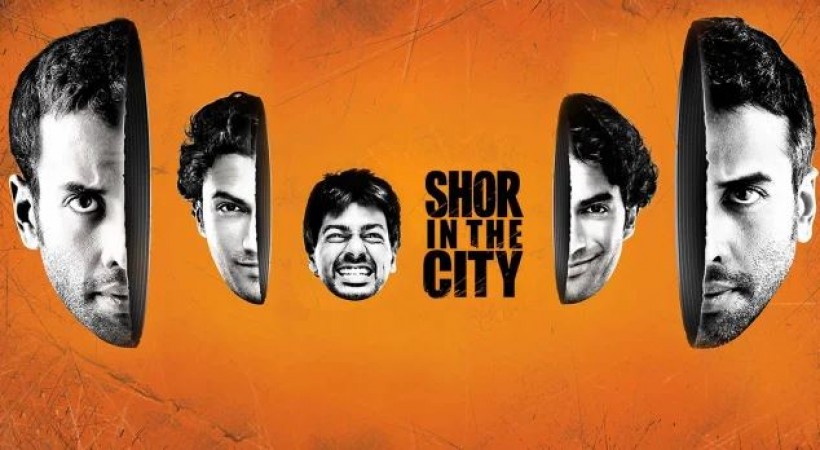
In the dynamic realm of Indian cinema, titles are crucial in establishing a film's identity and attracting viewers. The 2011 Bollywood film "Shor in the City," a compelling drama centred on the lives of disparate characters in the bustling metropolis of Mumbai, is the subject of one such fascinating story of a title fight. It's interesting to note that this movie was originally going to be called "Shor," but renowned actor and director Manoj Kumar wouldn't give up the title because he owned the rights. This article highlights the importance of titles in the world of film by exploring the intriguing story of "Shor in the City" and the dispute over its name.
The critically acclaimed crime drama "Shor in the City," which was co-directed by Raj Nidimoru and Krishna D.K., offers a realistic and gritty depiction of life in the heart of Mumbai. The film is renowned for its gripping narrative and masterfully rendered characters that skillfully manoeuvre through the cacophonous and disorderly city streets. When it was released in 2011, Tusshar Kapoor and Sendhil Ramamurthy, the film's lead actors, received high marks for their performances as well as the film's storyline and direction.
"Shor in the City" was originally going to be called "Shor" during pre-production. The title selection complemented the main theme of the film, which is the clamour and chaos that urban residents experience on a daily basis. The filmmakers thought it was a fitting choice because it encapsulated the essence of the movie perfectly.
However, when seasoned actor and director Manoj Kumar claimed ownership of the title "Shor," the situation took an unexpected turn. Manoj Kumar is a well-known character in Indian cinema, best known for his parts in a number of classic films from the 1960s and 1970s, most notably "Upkar" (1967), in which he played Bharat. He also directed and performed in films with strong patriotic themes, which helped him gain the nickname "Bharat Kumar."
The filmography of Manoj Kumar was the source of the claim regarding the title "Shor". In 1972, he had both directed and acted in the movie "Shor." This drama, "Shor," was well-received by critics and addressed a number of social and political themes. Because of his connection to this movie, Manoj Kumar was adamant that he was entitled to use the title "Shor".
A legal dispute arose as both Manoj Kumar and the producers of "Shor in the City" staked claims to the title "Shor." Intellectual property rights and trademark laws were the main topics of discussion when the case was brought before the court.
Intellectual property laws are essential in establishing rights over titles in these situations. Within the film industry, titles are frequently regarded as intellectual property, and producers and directors obtain the rights to utilise particular titles for their works. These rights are usually acquired by registering the titles with the appropriate authorities or by asking those who currently possess title rights for a no-objection certificate.
Manoj Kumar won the case, with the court ruling that his earlier use of the title "Shor" for his 1972 film gave him the right to use it. Consequently, the creators of "Shor in the City" were forced to rename their movie. The new name, "Shor in the City," was chosen to keep the film's theme and plot cohesive as well as to suggest that the "shor" or noise in the lives of the characters originated from the city.
The dispute surrounding "Shor in the City"'s title highlights a number of important aspects of the film industry, most notably the significance of intellectual property rights and titles.
The Power of Trademarks: This instance highlights how crucial it is for the film industry to register trademarks. It is important to secure trademarks for film titles because Manoj Kumar had a strong claim to the title "Shor" from his previous use of it for his film "Shor."
Legacy and Prominence: Actors and directors who have made noteworthy contributions to the motion picture business are frequently honoured for their legacies in the business. Manoj Kumar's affiliation with the moniker "Shor" was a major factor in the ruling, emphasising how important it is to acknowledge the contributions of veterans of the industry.
The title of the movie was changed from "Shor" to "Shor in the City" as an example of the adaptability and inventiveness of the filmmakers. The filmmakers were still able to preserve the main plot points of the movie in spite of the legal setback.
The Intersection of Law and Art: This case highlights how legal issues and artistic expression intersect in the film industry. The film industry incorporates complex legal and business aspects, such as intellectual property rights, in addition to storytelling and artistic expression.
The original title of "Shor in the City" may have been "Shor," but the legal battle over the name ultimately resulted in its change to "Shor in the City." The complex dance between creativity and legality that exists in the film industry is reflected in this story. It also demonstrates how crucial it is for those working in the film industry to comprehend and uphold intellectual property rights, making sure that trademarks and titles are appropriately maintained and safeguarded. In the end, "Shor in the City" emerged as a distinct entity amidst the cacophony of legal disputes, exemplifying the adaptability of the Indian film industry to legal obstacles.
Neetu Chandra's Haryanvi Cop in 'One Two Three' Mirrors Chandramukhi Chautala
Bollywood's Bittersweet Goodbye to Aziz Mirza with 'Kismat Konnection'
Bhoothnath Marks the End of an Era for Shah Rukh Khan and Juhi Chawla